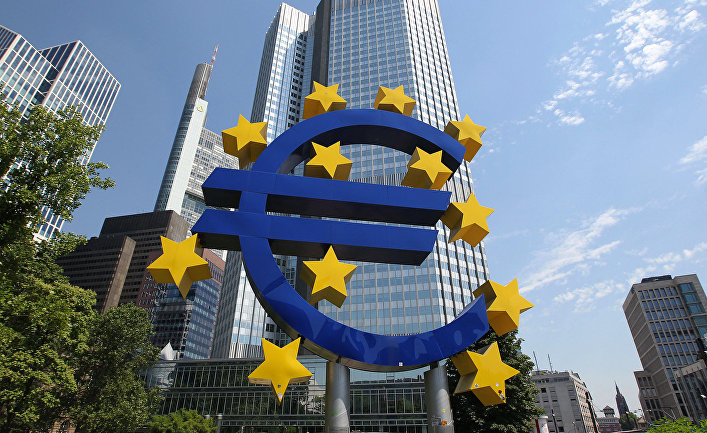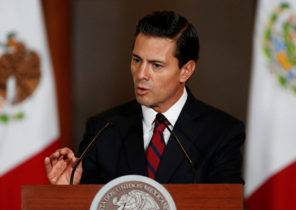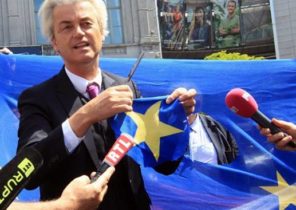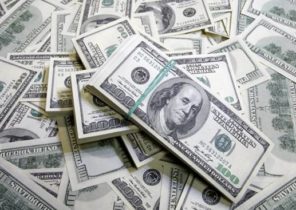
Ted Malloch, the likely next U.S. Ambassador to the European Union, convinced that in 18 months the Euro will collapse. Although such a statement is an obvious exaggeration, the Euro is really going through hard times. The United States is particularly interested in a weak Euro area.
Atlantico: “the Euro could collapse in 12 to 18 months,” said the likely next US Ambassador to Brussels malloc Ted (Ted Malloch). Pierre Moscovici (Pierre Moscovici), in turn, said that although the Eurozone and the lack of unity, its currency is strong. Why Donald trump may be interested in the destabilization of the Eurozone?
Edouard Yusson: the Most surprising that Moscovici falls into a trap, he is responsible for the Euro instead of talking about the need to respect the rules of the Kingdom, while she’s still not out of the European Union. London should refrain from unilateral initiatives by trade agreements. Mei and trump will probably be a long time to discuss strategy Breccia. The US President can promise the support of the UK.
This is the essence of the statements Malloch brown on BBC. It sends a clear signal to the Europeans: have a good attitude to the UK, because otherwise you will find yourself in front of a United Anglo-American front. He indicates one of the weaknesses of the enemy: the European currency is fragile as a result of gaps in the construction of the Eurozone and due to the repeated crises that were caused by the Greek debt after 2010. These statements indicate the logic of containment and the intention to return the enemy to the negotiating table at the very moment when many in Brussels continue to believe that Breaksit will not take place or will end badly for London. Here we see the weakness of the opponents trump: they find it irrational and therefore not trying to understand his game. They believe that Washington’s policy is subject to occasional gusts, although it is actually thought out. Malloc definitely got from trump’s approval for such words, and before the meeting of the President of the United States with Theresa may. London and Washington are developing a position in case of conflict, Moscovici shows that continental Europe has no strategic talent.
— Is it really possible collapse of the Euro in the coming year? What are its main weaknesses, especially over the next 12-18 months? That understates Pierre Moscovici and exaggerates Ted malloc?
— I want to clarify that, in my opinion, the concept of “monetary sovereignty” is utterly meaningless. Currency is an international, even global reality. One of its functions is to ensure interaction between people, businesses and groups. Until 1914 there was a single world currency, gold, which repelled most of the existing monetary instruments. Of course, this system wasn’t the best, because until 1870 the years were inspired by several metals, including gold and silver. Even in the current system of fiduciary money, we see that the world economy operates with a small number of reserve currencies. I do not belong to those who defend the national currency and oppose the Euro. Anyway, the European currency was not thought out well: the whole of Europe was imposed on the German concept of management of credit instruments (the”single currency”) instead of creating a standard currency with decentralized lending for rapprochement with the needs of the economy (“General currency”). The system failed because it does not allow to efficiently manage such a huge education as Eurozone with heterogeneous enterprises and needs in the loans. With the exception of Germany for which the Euro has become slightly devalued the brand, in other countries of the Eurozone, the single currency leads to increasing socio-economic tensions, unemployment, relocation of production and a critical lack of investment. This system destroyed Greece. Italy is also on the brink. In France, the slow but unstoppable rise of the National front on the one hand and radical Islamism on the other… Since 2010, the Eurozone afloat only with the help of quantitative easing (it plays into the hands of banks, but not to the public) and tight fiscal policy, which imposed the societies of the government of area. Ted Malloch not discovered America: the Eurozone is fragile, more fragile than it seems.
— What consequences could result in a collapse from the point of view of the correlation of forces among Nations and major organizations?
— Introduced by Nixon in 1971, the world monetary system in which the dollar became the world reserve currency, led to the most disastrous consequences for the United States. They 45 years, lived in credit, even unlimited, because the whole world needed to issue us bonds for the formation of international means of payment. De-industrialization, strong social inequality, crime and racism, parasitic military-industrial complex and total oversight of the companies the digital sector — so America was the brainchild of this destructive monetary system. If we want to defend an open economy against neoprotectionism trump, we must fight for the reconstruction of international monetary order: the major regions must either adopt a common monetary standard, or to limit fluctuations of major currencies against each other. The best economic policy would be to find the balance between the regulation of international trade to correct the excesses of competition and a General foreign exchange order. As can be seen in the confrontation with China (in fact there are huge reserves of gold, dollars and euros) a trump can be interested in the collapse of the Euro to Europeans have begun to buy dollars and thereby support the American currency. The collapse of the Eurozone would lead automatically to the appreciation of the currency and Germany would make its exports less competitive. In General, the trump bets on the dollar strengthening and the restoration of relations with Moscow. Collapsed and trapped between the three powers (USA, Britain and Russia) and continental Europe in fact turned out to be in the dollar zone. Trump opposes Euramerica Chinese project of Eurasia.







